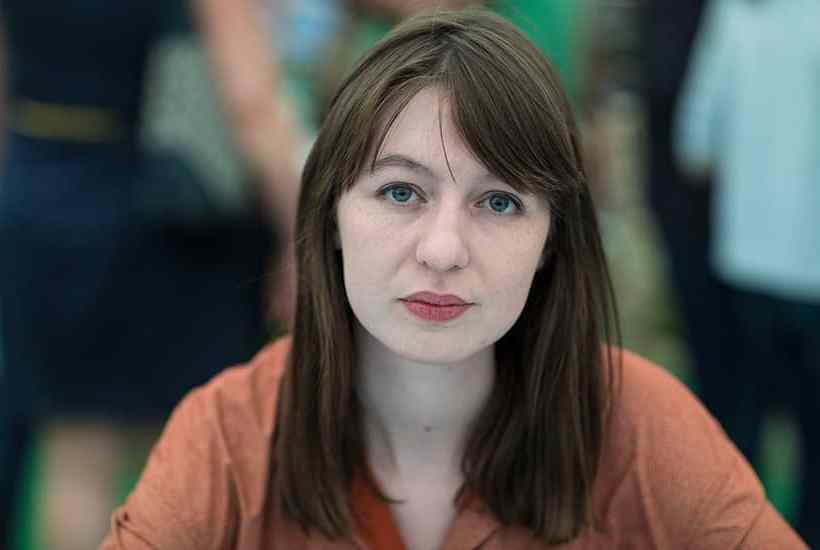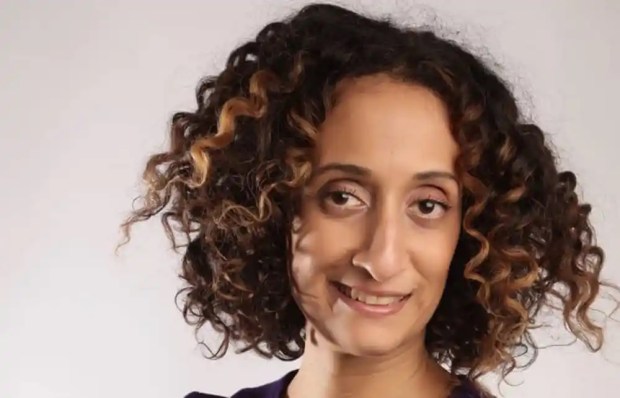I have not watched the BBC’s new period drama Ridley Road because I knew it would be impossible for the corporation to commission any series about anything without grafting onto it facile and usually pig-ignorant observations which suggest that history always reveals that the BBC left-liberal mindset is right about everything.
So it seems to be from reviews I have seen from the likes of Melanie Phillips and one or two others. Ridley Road concerns the 62 Group’s struggles against fascism and anti-Semitism in east London in the 1960s, and especially Colin Jordan’s National Socialist Movement (NSM). The 62 Group were ‘anti-fascists’, an amalgamation of communists and Jews and fellow travellers who combined to battle what the series suggests was a terrifying threat to democracy and the safety of Jews in the UK.
Needless to say, the fascists use language such as ‘taking back control’, drawn directly not from the times but from the vocabulary of pro-Brexit campaigners 50 years later, just so you get the point. Further, this ‘terrifying threat is overstated to a degree which any sane person would consider absurd. The ragtag and bobtail far-right lunatics — including the NSM, the British National Party, A.K. Chesterton’s hilarious League of Empire Loyalists and the National Front — achieved a pinnacle of public support in the 1979 general election when the NF polled 0.6 per cent of the vote. In other words, almost nobody supported them, at any point.
The purpose of Ridley Road is to suggest that it is the left — and in particular the commies — who can be relied upon to fight racism and especially anti-Semitism, and that anti-Semitism is solely a manifestation of the kind of right-wing populism prevalent today. This will come as a revelation to the many British Jews who have felt a little discomfited these past few years by the patent anti-Semitism on the left of the Labour party.
It is true, of course, that the communists and Jews stood side by side in the Battle of Cable Street in 1936. It is true, too, that in the 1940s and 1950s between 7 and 10 per cent of British Communist party members were from a Jewish background and that therefore one in 100 British Jews were CP activists (according to Jason Heppell). But there are obvious reasons for this. The National Socialists in Germany insisted that Bolshevism was a Jewish manifestation and so the Jew and the communist suddenly had common cause. The left’s support for our Jewish community, then, became a marriage of convenience on both sides and ignored Lenin’s strictures against the Jews (they must be ‘taken by hedgehog skin gauntlets’) and Stalin’s relentless persecution of them in a campaign waged against, euphemistically, ‘rootless cosmopolitans’, in which thousands of Jews were murdered.
Even within our own pathetic CPGB — orders direct from Moscow, of course — there was an abiding resentment against the largely middle-class Jewish members (the non-Jews were horny-handed sons of toil), best described in Bob Darke’s wonderful book The Communist Technique in Britain. Darke was a long-time CPGB activist and councillor in Hackney, but left partly over the Soviet intervention in Hungary and his own samizdat sympathies for British soldiers fighting in Korea.
If the BBC fancies commissioning another political period drama, it could do worse than to dramatise Darke’s brilliant account. It is all there: the stupidity, bigotry, humourlessness, authoritarianism and denial of reality of the far left. At one point the party commissars drop round to Darke’s frowsy council flat, peremptorily order his wife to make tea and lambast Bob for his loudly coloured tie and the fact he still has a portrait of Tito on his wall. It is a stunning and at times both hilarious and tragic account of life among the British commies of the time, and there is no need to shoehorn in any contemporary allusions — they are all there anyway.
I don’t doubt for a second that anti–Semitism has been rife among our upper classes, much as it is still there within the famously ‘Arabist’ Foreign Office. But for Jews to align themselves with the far left was surely an understandable misstep: better to align yourself with the party that can make Benjamin Disraeli leader, or Nigel Lawson chancellor of the exchequer. Jews in the Labour party tended, by contrast, to receive short shrift. Even shorter these days: the activist left is modern anti-Semitism writ large. By contrast, is there a more pro-Israeli government in Europe than Viktor Orbán’s in Hungary, reviled though it is?
The modern left’s visceral anti-Semitism was revealed once again when the mimsy and boring Irish author Sally Rooney decided to prevent her latest book, Beautiful World, Where Are You, being translated into Hebrew. One’s first reaction is: ‘Oh, you lucky, lucky Israelis.’
Whatever, for this, Rooney has been lionised by the left, which hates Israel with a venom that is, to most normal human beings, out of all proportion. Rooney supports the Boycott, Divestment, Sanctions (BDS) movement which considers Israel — uniquely — a terrorist and apartheid state. That BDS is itself deeply anti-Semitic is something scarcely worthy of debate. Its spokesman says it wants to ‘upend the Jewish state’ therefore denying the right to self-determination to Jews’.
In doing so, then, it is clearly and explicitly racist. But it is the uniqueness of Israel’s supposed perfidy which gives the game away. Rooney’s last awful book was translated into 46 languages. Did that include Arabic, the language spoken by the Saudis, Kuwaitis and Emirates — a collection of slave states which deny their citizens the vote, along with all the normal access to human rights? Is it okay for her book to be translated into Urdu or Burmese or even Russian? If so, why? What is the great difference with Israel?
I hope you enjoy Ridley Road. But remember, these days anti-Semitism is the preserve of the left.
Got something to add? Join the discussion and comment below.
Get 10 issues for just $10
Subscribe to The Spectator Australia today for the next 10 magazine issues, plus full online access, for just $10.
You might disagree with half of it, but you’ll enjoy reading all of it. Try your first month for free, then just $2 a week for the remainder of your first year.















Comments
Don't miss out
Join the conversation with other Spectator Australia readers. Subscribe to leave a comment.
SUBSCRIBEAlready a subscriber? Log in